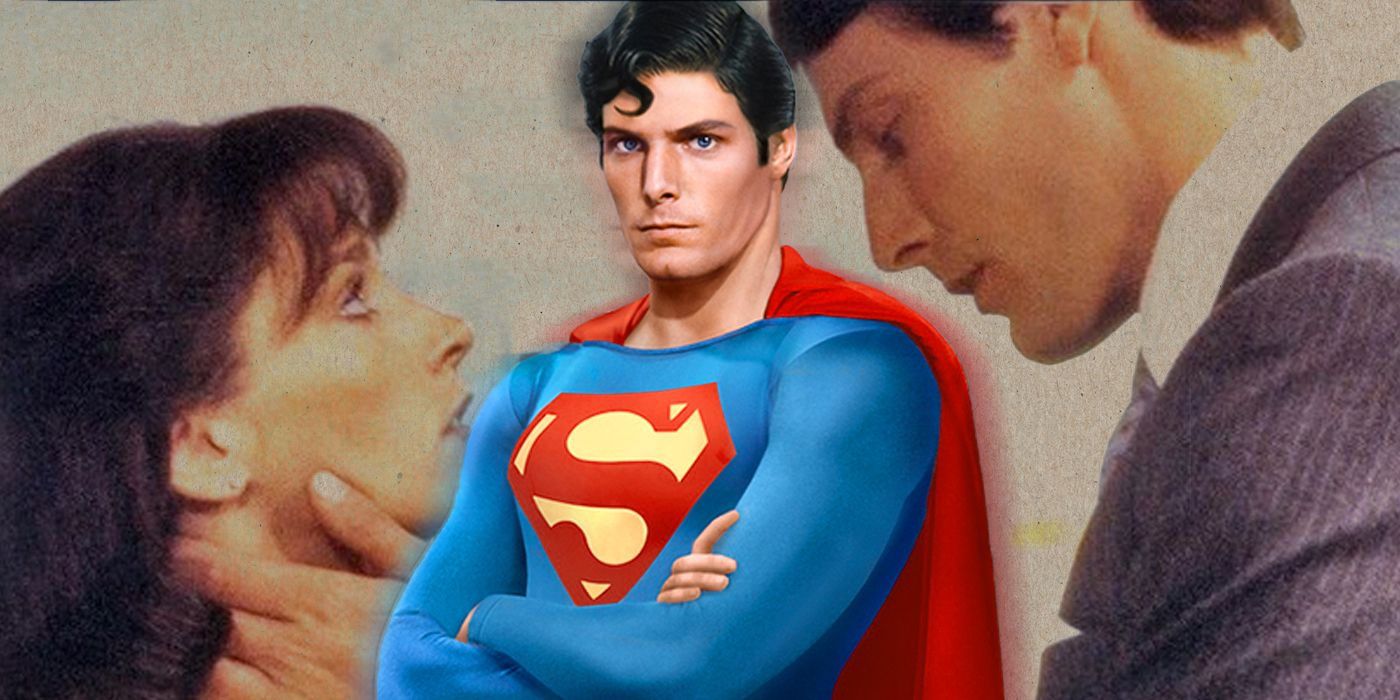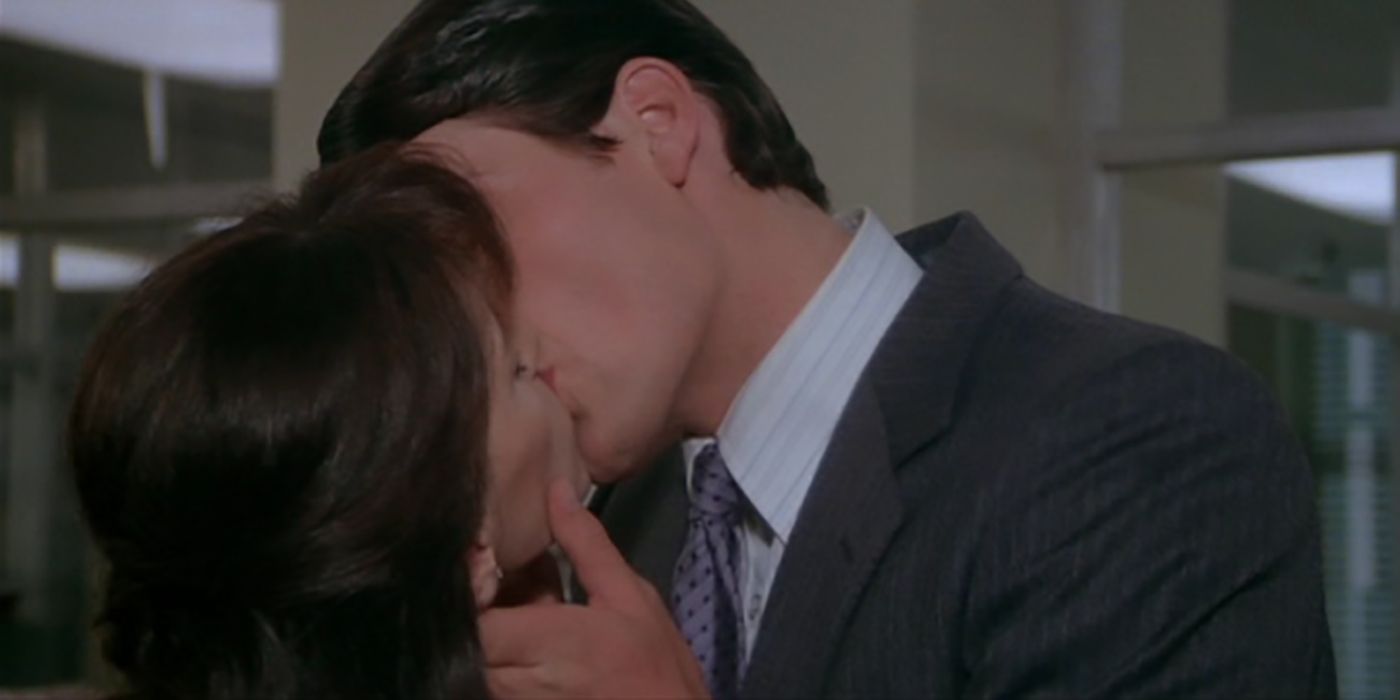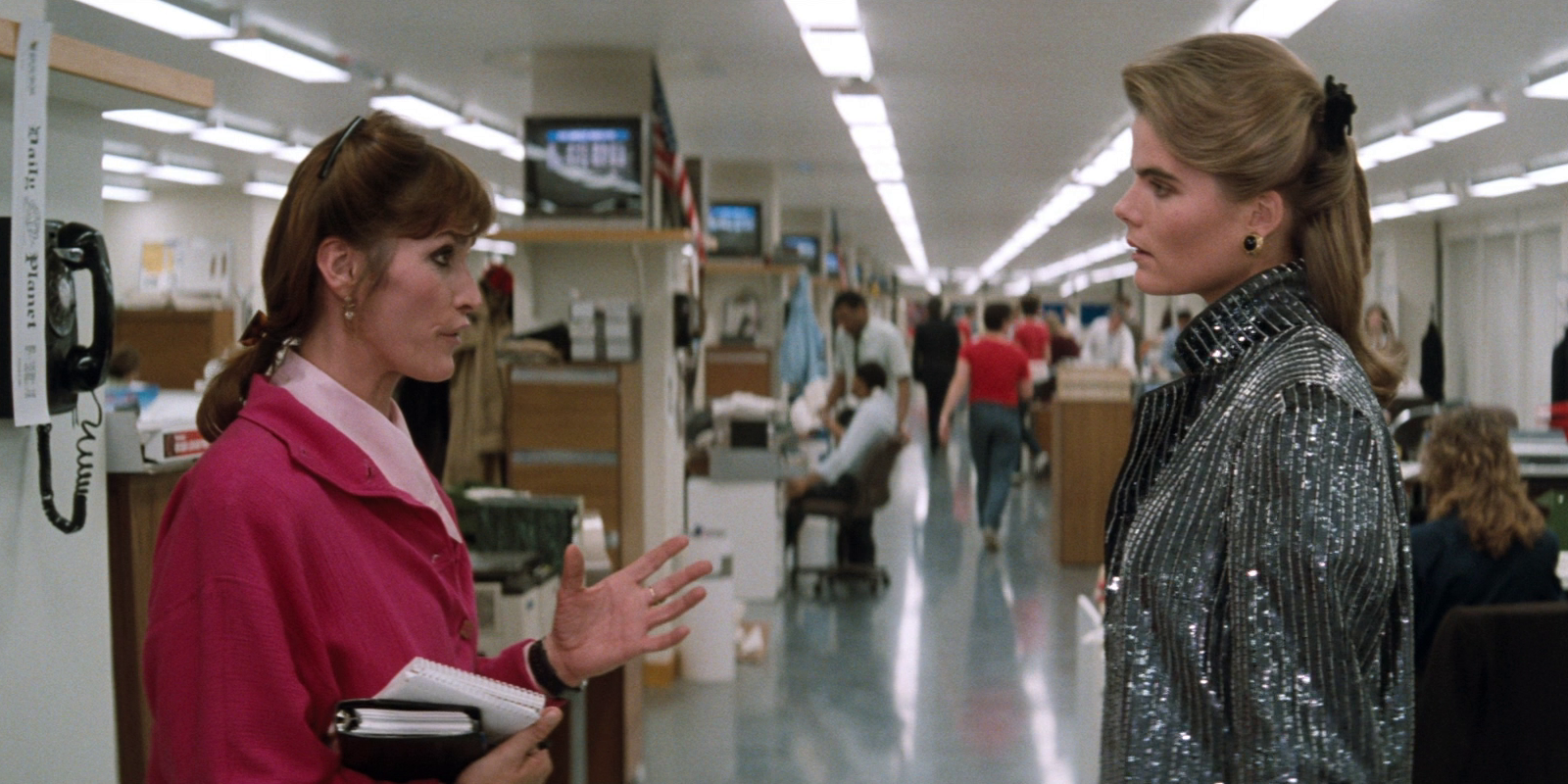Superman II famously ended with Clark Kent performing a memory-wiping kiss, removing Lois Lane's knowledge that he is the Man of Steel. Unfortunately, Lois was not aware that she would forget Superman's greatest secret. By erasing it from her mind without her consent, Clark ripped away the agency of the world's greatest journalist, dismissing her importance in the DC Comics franchise.
At the movie's climax, Christopher Reeve's Clark ends his relationship with Margot Kidder's Lois after deciding he cannot be with her and fulfill his obligations to humanity. Although Lois understands, she tearfully admits that she is "jealous of the whole world" and finds it painful to work alongside him while keeping the truth about him -- and her love for him -- to herself. Clark responds with the memory-wiping kiss to relieve her of this agony, restoring Lois to the person she was at the start of the series: confident, energetic and completely oblivious toward her colleague and the fact that he is Superman.
However, Clark's good intentions do not change the fact that he altered Lois' mind without giving her a say in the matter. As eager as he was to restore Lois' happiness, he should have given her a choice to forget his superhero identity. Despite the grief it caused her, Lois had previously vowed to keep Clark's secret, so she may well have refused to have this knowledge taken from her. By making this decision for her, the otherwise selfless Superman acted primarily for his own sake, freeing himself from dealing with the guilt of burdening Lois every time he walked into the Daily Planet.
Indeed, he ended up seeing very little of Lois at work in the follow-up installment, as Kidder barely appeared in Superman III. Sources have claimed that Kidder was being punished for publicly criticizing the replacement of director Richard Donner with Richard Lester on Superman II. Producer Ilya Salkind denied this on Superman III's commentary in 2006, attributing the focus on Annette O'Toole's Lana Lang to Clark and Lois' romance effectively concluding.
If Salkind's account is to be believed, then Lois losing her memory actively reduced her involvement in Superman III. Although she travels to Bermuda and returns with a big story, no time is given to her investigation because she is no longer Superman's primary love interest. By returning to the point before seeing through Clark Kent's glasses, Lois' character growth was stunted. Had she played a bigger part, she might have entered a loop of discovering and forgetting Superman's identity.
In fact, that is precisely what happens in Superman IV: The Quest for Peace, which introduces a new love interest in the form of Mariel Hemingway's Lacy Warfield. Conflicted about whether to intervene in the ongoing nuclear arms race, Clark reveals his secret to Lois a second time for the sole purpose of seeking her advice before wiping her mind once again. The Man of Tomorrow thus reduces the love of his life to a prop, one whose memories he can freely alter whenever he needs a pep talk.
This farce only continues when Lacy suggests to Clark that they should cut in on Lois' latest interview with Superman, forcing Clark to fool both women by switching back and forth between personas. Forbidden from seeing through the charade, Clark's closest friend is forever kept at arm's length, all because her knowing the truth would force the Superman series to undergo serious change.
Unlike comics, movie franchises do not have a presumed obligation to the status quo due to the passage of time between installments. Even if Lois could no longer be Clark's girlfriend, both could easily have served as each other's closest confidants, their lingering feelings for one another becoming a fresh source of conflict. Instead, Superman -- a paragon of virtue -- is reduced to deceiving and manipulating his greatest ally in service of creatives afraid to empower one of the most iconic women in comics.



